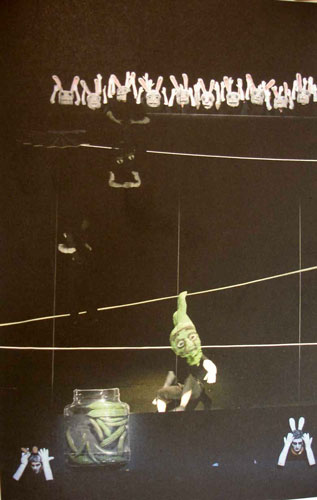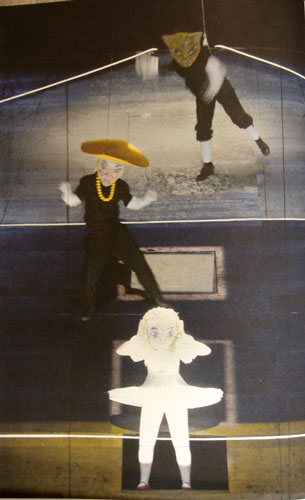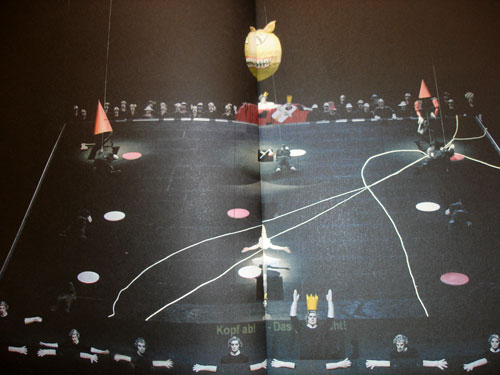A Waste of Shame
In which the Adults of a pleasant Town are Ensnared in their Efforts to Protect Two YOUNG PERSONS from their Better Natures
CHAPTER THREE
As you have seen, dear reader, the virtues of small town living so often extolled by the more reactionary among us for its salutary benefits were not without their pitfalls. As the buttocks—and thighs—of our young hero, and heroine, continued to mature to perfection, it would take more than the perversity of this author for them to escape the notice of those among whom they lived. Divine forces perhaps could provide for such an escape, but I trust it is clear by now that divinity has little role in our proceedings.
It’s not as if, of course, these physical attributes were the topic of open discussion at the Music Committee meeting at First Baptist or the faculty lounge of Bretenton High School. One of the very real virtues of small town living is that such things cannot be discussed openly, and therefore the race of lust for youthful beauty is impeded by its very secrecy, born of shame and concealed in furtive heat. So no one admitted that he or she was enthralled by the very sight or thought of Tristan’s firm and perfect rear.
It must be said, however, that Mrs. Butler, First Baptist’s organist and a woman of not only of real talent and discernment but also of still viable personal attraction, was quite distressed to realize that her attention during warm-up of the youth choir during Tristan’s junior summer was often wandering from Mr. Temple’s capable baton to the boy’s sneakers, up his shapely bare legs to—Well, she was mostly able to quash those thoughts, quite consciously. But she was also conscious that the hair on those legs was continuing to darken and sprout.
“Such a nice young man, and growing so tall!” she allowed herself to think, and often told his mother so.
Blake Temple, young and handsome himself and new to his position as minister of music at First Baptist, like everyone else in Bretenton found the boy’s beauty startling and distracting. As he maintained eye contact with all the members of his youth choir, scanning the healthy young faces in turn, he found Tristan’s face disruptive to his rhythm; he lingered a second or two longer than he had been trained to do, returning Tristan’s bright smile, simply because Tristan’s handsome, open, friendly face invited him to do so. He was not bothered by this phenomenon, nor was he similarly overly aware of the young man’s haunches.
These kinds of thoughts may have remained unshared in most of Bretenton’s sanctuaries of adult power, but there was one place where these thoughts were not only common but expressed, indeed encouraged. I am speaking of course of the coaches’ office in the gym at Bretenton High School.
I am not suggesting for a moment that George Burton, the head coach, was lusting after the beautiful Tristan. No, indeed, all of his totally inappropriate remarks, made to one assistant coach or another, were about Jesse, and those were many and inappropriate. He assessed Jesse’s ass with a determined wonderment and was free with his assessment with the mostly younger men in his immediate employ, and some of them returned his enthusiasm, although without the element of determination that they failed to detect in him.
And yet. There was an anger, whenever Tristan was in his gym, that bubbled over a constant low heat, and the sight of the boy was a constant push on the dial of his control. His irritation with Tristan was irrational, a fact he knew but could not reject, and so he found himself constantly watching the boy, haranguing him, chewing him out for minor or imagined transgressions, all in the name of improving his character and correcting character flaws that, if pressed, Coach would have been unable to define.
Coach, if he had been forced to talk about it at all, would have said that his frustration with the boy was due to the obvious attraction that Jesse showed for Tristan, although if you will recall it was an attraction of which she herself was not aware. It was jealousy, he would have said, although naturally he would not have admitted this to anyone in his circle; Jesse was a minor even if she were not a student, and he was acutely aware of what happened to coaches who screwed little girls or even entertained such thoughts.
In his grimmer fantasies, he would succumb to a grim smugness when he considered that Tristan was not a minor, barely, and could be made to suffer the consequences of consummating any attraction he might feel for Jesse. This knowledge served as a ghostly justification for Coach’s abuse of Tristan Oh.
He also told himself that his more vicious moments were caused by his medication. Suffering from anemia, he received testosterone shots once a month at his doctor’s office. Besides the sore arm—he bruised easily with his fair skin—the irritation he felt could easily have stemmed from the wide fluctuations of testosterone in his bloodstream. Or so he reasoned; he never charted his outbursts on the gym floor and in the locker room against the dates of his injections.
But in fact, Coach’s anger stemmed from a simple and pure resentment of Tristan. Beyond the usual attributes of youth that the older generation holds as grudges—energy, untried sexuality, an unreasonably taut abdomen, to name a few—Tristan’s extraordinary physical beauty was an added goad to Coach’s aging despair. Like Blake Temple, he found himself looking at the boy more often than was usual for him, but unlike Blake, this engendered a discomfort that blossomed as rage in Coach’s soul. It was not Jesse’s ass that was disturbing George Burton, it was Tristan’s.
For his part, Tristan knew only that Coach didn’t like him. He was always yelling at him for no reason or for some trivial reason, and Tristan, not a young man accustomed to rebellion, simply tried to lay low. It never occurred to him, either, to try to please Coach. If he just tried to stay out of the man’s way, he could sometimes, though not often, get through practice or weight training without being yelled at.




